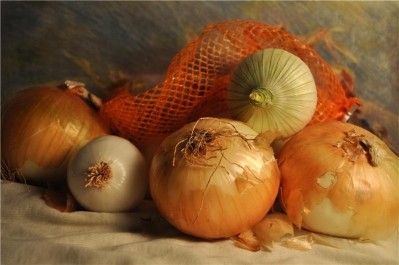Fish liver may be source of essential fatty acids: Study
The study, published in Journal of Food Composition and Analysis, suggests that fish livers – which are generally seen as waste products to industry – possess high concentrations of beneficial fatty acids, including long chain polyunsaturated fatty acids like omea-3s.
“The livers of edible fish are a good source of long-chain polyunsaturated fatty acids (PUFA), especially those in the omega 3 family, such as eicosapentaenoic acid (EPA) and docosahexaenoic acid (DHA),” said José Luis Guil-Guerrero, lead author of the study.
“The present study constitutes a first approach to the knowledge of the fatty acid profiles of the fish livers of commercial selected marine species in summer, when waters are rich in nutrients and mineral salts and lipid content increases considerably,” they explained.
Commenting on the findings, Harry Rice, PhD, VP regulatory and scientific affairs at the omega-3 trade association Global Organization for EPA and DHA (GOED), told NutraIngredients that while the majority of fish livers may be discarded, cod livers have been harvested for oil extraction “for a couple hundred years.”
Fish oil
“Over the past two decades, an increasing interest in the health benefits of fish oil consumption has emerged, because this oil seems to be one of the richest sources of omega-3 long chain PUFAs, particularly EPA and DHA,” explained the authors.
Guil-Guerrero and colleagues explained that while some fish (such as salmon, trout and herring) store fatty acids predominantly in muscle tissues, lean fish tend to accumulate fatty acids in body cavities and organs (such as the liver).
“Therefore, the livers of lean fishes are commonly a rich source of fatty acids,” they noted.
Commercial potential
The researchers explained that as fish oil resources begin to be limited, the development of new marine oils using existing by-products generated by the fishing industry “seems to be a good idea to develop.”
“These results demonstrate that raw materials are available for fish oil production … In addition, a better utilization of the available marine resources, maximizing returns of oils from by-products of industrial fisheries, is needed for sustainable development,” said the researchers.
“If they were used this would also reduce the environmental pollution caused by throwing innards into the water, which is an inherent problem in the fish product processing industry in coastal areas,” added Guil-Guerrero and colleagues.
GOED’s Rice told NutraIngredients that the use of cod livers has shown that extraction of omega-3 rich oils from fish livers is possible. He said that providing it makes economic sense, “using other fish livers should be a viable option as well.”
Study details
The study focused on 12 kinds of fish that are commonly eaten in south eastern Spain, including hake, shortfin mako and European pilchard.
The researchers reported that the livers of the great weever (Trachinus draco) and the European anchovy (Engraulis encrasicolus) possessed the highest levels of long chain polyunsaturated fatty acids; with 51.4 and 47.9 per cent of the total fatty acids, respectively
In addition, all species were found to have a ratio of omega-3/omega-6 acids that was “beneficial for human consumption.” The researchers highlighted the liver of the blue whiting (Micromesistius poutassou) as on that contained the most beneficial ration of omega-3:omega-6 fatty acids (a ratio of 10:2).
“Unfortunately, discarding these livers means that all their nutritional properties are missed,” said Guil-Guerrero.
Source: Journal of Food Composition and Analysis
Volume 24, Issue 2, Pages 217-222, doi: 10.1016/j.jfca.2010.07.011
“Fatty acid profiles of livers from selected marine fish species”
Authors: J.L. Guil-Guerrero, E. Venegas-Venegas, M.Á. Rincón-Cervera, M.D. Suárez














